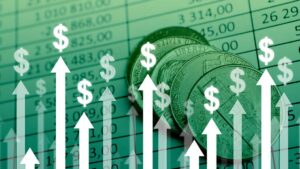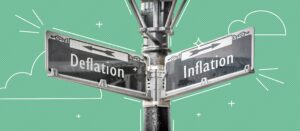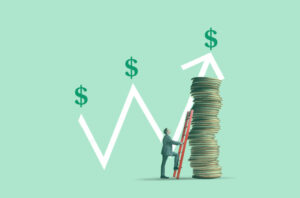Is the US Federal Reserve reshaping economic stability, or are we facing a new financial situation? The Federal Reserve recently chose to keep its benchmark interest rates stable, staying between 5.25% and 5.50%. But with worries about inflation growing, we’re left wondering: is this move a wise economic decision? The prospect of potential future rate adjustments has left investors contemplating what lies ahead with a sense of uncertainty
The Fed’s Delicate Dance with Inflation
The Federal Reserve’s choice to keep interest rates unchanged reflects its attempt to strike a delicate balance in addressing inflationary pressures while supporting economic growth. Although the Fed remains flexible to adjust rates based on economic indicators, the decision has caused mixed reactions in the stock market.

For investors, the Fed’s decision marks the importance of closely monitoring future actions and communications from Fed Chair Jerome Powell. Understanding the Fed’s strategic intentions can provide valuable insights for navigating market volatility and making informed investment decisions. Diversification and staying informed about market developments are key strategies for investors amidst uncertain economic conditions.
Insights from Fed Chair Jerome Powell
Fed Chair Jerome Powell’s remarks shed light on the rationale behind the Fed’s decision and its outlook on inflation. Powell acknowledged the challenges posed by persistent inflation, emphasizing that it may take longer than anticipated for inflation to return to desired levels. Despite this, Powell expressed confidence that current policy rates are exerting sufficient pressure on economic activity to address inflation concerns.
Broader Impact: Inflation’s Reach
The battle against inflation extends beyond financial markets, impacting households and businesses across the nation. Higher interest rates can lead to increased costs for mortgages, loans, and consumer goods, affecting household budgets and overall spending patterns. As the Fed strives to manage inflation while supporting economic expansion, the broader implications underscore the interconnected nature of economic policy and everyday life. While this might mean slightly higher monthly payments for some, it’s important to remember that interest rates are still relatively low by historical standards, providing continued opportunities for financial stability and growth.

Furthermore, businesses also feel the impact of inflation and interest rate adjustments. While higher borrowing costs may require some adjustments in financial planning, many businesses are capable of navigating these changes and finding innovative ways to maintain profitability and growth.
When it comes to consumer spending, fluctuations in inflation and interest rates can influence purchasing decisions and overall spending habits. While some individuals may choose to postpone major purchases in response to higher borrowing costs, others may find ways to adapt their spending habits or take advantage of favorable market conditions. What is most important is to make informed decisions, so individuals can make strategic financial decisions that align with their long-term goals and aspirations..

Potential Rate Changes and Economic Outlook
Investors are closely monitoring the possibility of future rate adjustments, with some speculating that rate cuts could commence as early as September. Still, Powell dismissed comparisons to the stagflation era of the late 1970s, emphasizing the differences in current economic conditions.
However, uncertainty surrounding future monetary policies persists, prompting investors to remain vigilant and adaptable in response to evolving market conditions.
Ultimately, while inflation and interest rate changes are natural components of economic cycles, they also present opportunities for individuals and businesses to adapt and thrive in changing economic conditions. By embracing a proactive approach to financial planning and remaining resilient in the face of uncertainty, people can position themselves for success in any economic environment
